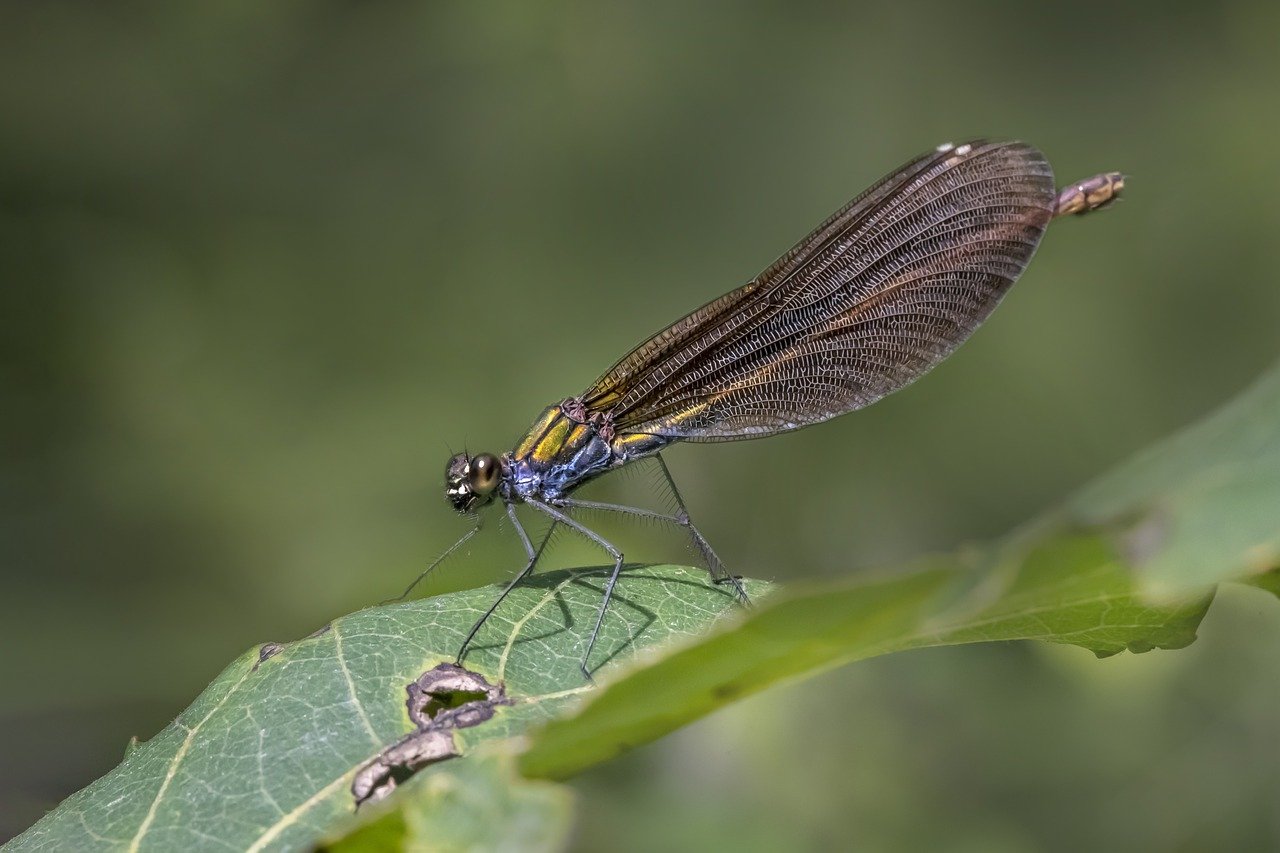🧚♂️ Beautiful Demoiselle (Calopteryx virgo)
The Beautiful Demoiselle, Calopteryx virgo, is one of the most striking and elegant damselflies in Europe. With its metallic body and dark, shimmering wings, it is a familiar and enchanting sight around clean, fast-flowing streams and rivers. It belongs to the family Calopterygidae, also known as the broad-winged damselflies.
🔍 Identification
- Size:
- Length: 45–50 mm
- Wingspan: 65–70 mm
- Male Appearance:
- Metallic blue-green or bluish-violet body
- Wings are broad and dark, often an inky blue-black, with no clear spots
- Female Appearance:
- Green-bronze body with a coppery sheen
- Wings are smoky brown or greenish, with a small white spot (pseudopterostigma) near the tip
- Flight:
- Flies slowly and gracefully, often flitting close to the water’s surface
🌍 Distribution & Habitat
- Geographic Range:
- Widely found across Europe, extending into western and central Asia
- Preferred Habitat:
- Clear, unpolluted rivers and streams, often with gravelly or sandy bottoms
- Requires good water quality, making it a bioindicator species
- Favors wooded or shaded areas where vegetation grows near the water
🕸️ Behavior & Ecology
- Territorial Males:
- Males are highly territorial, defending stretches of riverbank or stream
- Perform elaborate aerial displays to attract females and deter rivals
- Breeding:
- Mating occurs in the classic “heart” position seen in damselflies
- Females lay eggs on submerged vegetation or debris
- Larvae (naiads) live underwater for up to two years before emerging as adults
- Diet:
- Adults feed on small flying insects, especially midges and mosquitoes
- Larvae are aquatic predators, feeding on insect larvae and other small aquatic invertebrates
🛡️ Conservation & Threats
- Conservation Status:
- Generally common and widespread, but local declines occur where water quality is poor
- Major Threats:
- Water pollution, especially from agriculture or sewage
- Habitat destruction, such as riverbank modification or deforestation
- Climate change may alter aquatic habitats
- Protection Efforts:
- Preserving and restoring clean waterways
- Promoting buffer vegetation zones along rivers and streams
📌 Summary
The Beautiful Demoiselle (Calopteryx virgo) lives up to its name with its vivid colors and elegant flight. It is not only a visual treasure of freshwater habitats but also a valuable indicator of ecological health. By protecting this damselfly and its habitat, we support wider biodiversity and clean water ecosystems.
Visited 915 times, 15 visit(s) today
Views: 1480
